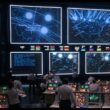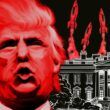Why politics is primary
By Ibrahim Said Ibrahim, July 1, 2013
Jamal Khaer Ibrahim has argued extensively in this Roundtable that societal verification has the best chance of flourishing in the developing world if business instead of politics is the primary focus of verification initiatives. He may be correct—as long as arms control is the sole focus of the discussion.
But as I argued in Round One, societal verification techniques might prove useful in fields ranging from human rights and humanitarian assistance to peacebuilding, conflict prevention, and environmental protection. In areas such as these, profit-making enterprises sometimes play only limited roles in the first place. When people require humanitarian assistance, for example, it is often because economic forces have not provided them the basic necessities of life. Is it reasonable in such situations to expect that businesses will devote resources to the societal verification techniques that might ensure the fair distribution of aid? And when it comes to an issue as political as human rights, it is difficult to imagine a successful societal verification initiative that attempted to emphasize business and exclude politics.
But even regarding societal verification of arms control agreements, the importance of business-oriented approaches should not be overvalued, nor that of political approaches undervalued. When Iran's undeclared nuclear facilities at Arak and Natanz were revealed in 2002, it was because of a Paris-based opposition group called the National Council of Resistance of Iran. Conceivably, a businessperson working in nuclear-related supply chains could have provided the information about Arak and Natanz—but that is not what happened.
The Iranian example suggests that the International Atomic Energy Agency should incorporate information derived from societal verification into its deliberations when it assesses states' compliance with their safeguards commitments. To facilitate this, I suggest that the agency establish methods by which industry professionals and citizens alike can safely and anonymously communicate compliance-related information. The United Nations could adopt a similar system that gathered information on issues ranging from arms control to human rights to environmental protection. This would not only assist in treaty verification and compliance with norms but also encourage states to display greater transparency when they deal with multilateral organizations.
This Roundtable has explored a number of key questions on societal verification's role in the developing world, but many avenues for investigation remain. For example: What if all relevant international agreements included language explaining how societal verification would contribute to the agreements' implementation (as, to an extent, the Comprehensive Nuclear Test Ban Treaty already does)? What if organizations like the International Court of Justice and the International Criminal Court weighed in on the protections that national authorities should extend to citizens who report on treaty compliance? What if the United Nations oversaw the negotiation of a treaty on societal verification and the protection of citizens involved in it? This much remains certain: Societal verification will truly thrive only if ordinary people in the developing world—those who can contribute most to verification of arms control treaties—come to feel that their nations are treated justly under the nonproliferation regime.
Topics: Nuclear Weapons, Technology and Security
Share: [addthis tool="addthis_inline_share_toolbox"]














